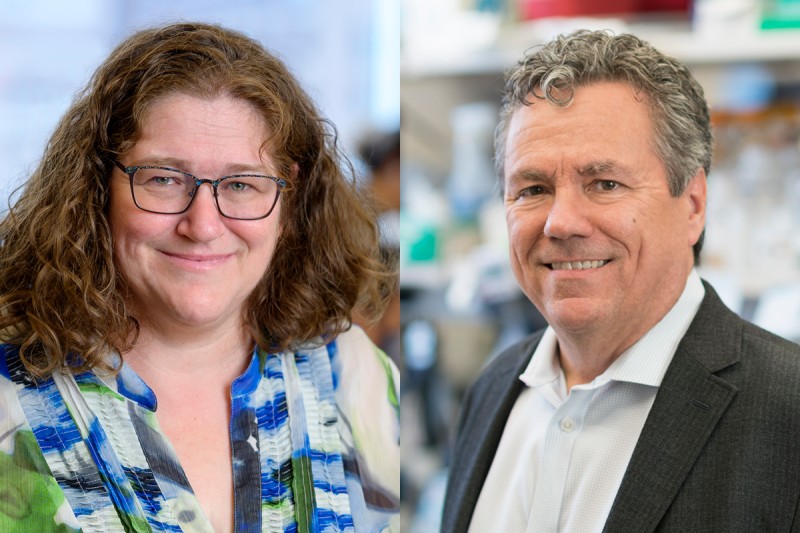
Discussions of cancer often stress the genetic mutations that drive disease by altering the normal function of cellular proteins. KRAS, for example, normally acts as an on/off switch for cellular proliferation, but mutations to the gene — common in lung cancer, colorectal cancer and pancreatic cancer — cause that switch to stay on.
Yet mutations are only half of the story.
Interactions between these genetic mutations and external factors, such as tissue injury that leads to inflammation, reshape both cells’ identities and their local environment in ways that foster cancer’s emergence and runaway growth.
In pancreatic cancer, these changes start to happen fast — within 24 to 48 hours after tissue damage. They happen predictably. And they greatly expand some cells’ ability to communicate and interact with nearby cells.
Those were the findings from a new study published May 11 in Science by an international research team led by investigators at Sloan Kettering Institute at Memorial Sloan Kettering Cancer Center (MSK) and IRB Barcelona. The research combined sophisticated genetically engineered mouse models and advanced computational methods to map the earliest cell states leading to pancreatic ductal adenocarcinoma (PDAC), the most common type of pancreatic cancer.
While the five-year survival rate for pancreatic cancer has been inching upward in recent years, it remains quite low — just 12%, according to the Pancreatic Cancer Action Network. The disease is usually not caught until the cancer is in advanced stages and, thanks in part to advances in treating other types of cancer, pancreatic cancer is the third-leading cause of cancer-related death.
The research aimed not only to shed light on the difficult-to-study early cellular events that give rise to pancreatic cancer, but also to find potential opportunities for medical intervention at earlier stages of the disease.
How Plasticity Drives Cancer
The ability for cells to shed their original identity and adapt is called plasticity. And this plasticity is enhanced by inflammation, the researchers found.
“These precancerous cells gain the ability to send and receive far more signals than a normal cell,” says computational biologist Dana Pe’er, PhD, one of the paper’s two senior authors. “And we saw that this isn’t random — it’s structured. You see the same patterns emerge over and over when you run the experiments in different mice.”

The study was led by co-first authors Cassandra Burdziak, a doctoral student in the Pe’er Lab, and Direna Alonso-Curbelo, PhD., a former member of the lab of co-senior author Scott Lowe, PhD, who now leads her own lab at IRB Barcelona.
In order to study the origins and impacts of plasticity on cells expressing a mutated version of KRAS, the scientists performed single-cell analyses on normal, inflamed, premalignant and malignant tissues using a genetically engineered mouse model designed to accurately recreate many aspects of pancreatic cancer in humans — from its earliest beginnings to metastasis.
“These models allowed us to capture the earliest changes in pancreatic epithelial cells as they progressed from a healthy state toward a malignant state,” says Dr. Lowe, a Howard Hughes Medical Institute Investigator and Chair of the Cancer Biology and Genetics Program at the Sloan Kettering Institute. The single-cell analyses allowed researchers to tease apart the characteristics of sub-populations of individual cells within the pancreas at each stage of progression and how their interactions further drive the progression.
“This project required a significant amount of computational innovation, most of it led by Cassandra,” notes Pe’er, who is also a Howard Hughes Medical Institute Investigator and who heads the Computational and Systems Biology Program at the Sloan Kettering Institute. “We had to invent a number of new methods to answer questions that aren’t typically asked about plasticity, cell-to-cell communication, and tumor progression.”
For example, the team invented a new classification score to measure the plasticity of a cell.
The team also found increased plasticity led to the enhancement of genes related to cell-to-cell communication: like those that encode ligands and receptors.
“Basically, these are genes that enable cells to send and receive signals from its environment and with other cells,” Pe’er says. “This gives the cell the ability to respond to signals that a normal cell wouldn’t be able to. They also have an enhanced ability to communicate with immune cells, and, as a result, the immune system around these cells starts to change.”
Additionally, the researchers were able to determine that a few sub-populations of cells, some of them quite rare, transform into major hubs of communication, driving a feedback loop that leads to the development and progression of pancreatic cancer.
The study represents the culmination of research initiated by Dr. Alonso-Curbelo, who has a long-standing interest in detailing the molecular mechanism by which inflammation promotes cancer initiation..

“This work was a true partnership between experimental science and computational science,” Dr. Alonso-Curbelo says.
Computational models were validated with follow-up experiments. “For example, imaging showed us that the populations of cells that computational methods said were talking to each other were significantly closer to each other in the tissue,” Burdziak says.
Through further experiments, the team was able to demonstrate that these conversations drive cancer development.
“We developed new mouse models to specifically block cell-to-cell signaling associated with neoplastic plasticity,” Dr. Alonso-Curbelo says. “These analyses showed that these expansive communication networks direct pancreatic tumor formation in the mice.“
Toward Clinical Applications
As a whole, the research provides a new, detailed understanding of how cells carrying a mutated copy of the KRAS gene gain plasticity and drive the progression of cancer when subjected to inflammation.
“This provides a roadmap that can help develop strategies to detect or possibly even prevent pancreatic tumors before they reach an incurable stage,” Dr. Lowe says. “And understanding how cell-to-cell communication networks drive the initiation of pancreatic cancer holds promise for the development of therapeutics to block or slow early cancer progression, and even potentially more advanced disease.”